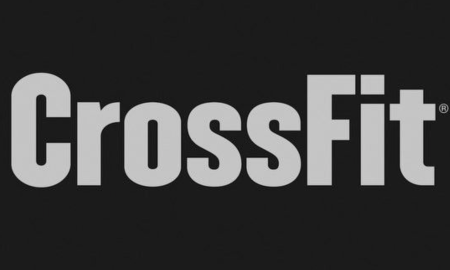
The decision to change your career is one that should not be taken lightly. It’s important to consider what you want from your future and it’s even more important to know if the position you’re considering will provide those needs for you. This blog post will discuss some of the most important factors that you should take into consideration before making a final decision about your future careers.
The Cost of Changing Careers
In order to change careers, you will have to invest in new skills. You might be able to leverage some of the skills from your current job if you are considering a promotion or changing companies.
However, it is also important not only that you take into account how much money and time this could cost but also consider what opportunities may exist for growth given the potential investments needed at both an individual level and organizational level. It’s important to take into consideration the cost of such changes.
For instance, if someone is making $100K per year as a salesperson and wants to switch over to become an accountant they would need about 500-600 hours of coursework (at least 40 weeks) plus passing three initial exams with a total price tag of around $1400.
Industry experts agree that having a diverse set of skills and experience is always beneficial, so it pays off to learn new things.
Research Your Options
Research other careers and figure out what you really want to do, as well as what skills will be necessary. It’s a good idea to speak with people in the industry before making any decision. For instance, if you’re thinking of switching to nursing from a completely different field, talk to nurses in your area about what it’s like. You’ll find out things like what education you’ll need, what nursing school to apply for, and how long the process takes.
Research tips include:
- Visit online job boards for companies that interest you
- Search social media groups related to your field or desired career path
- Read through company websites (if available)
- Talk with mentors/advisors about potential paths/careers they’ve had success in
- Talk with friends who have made similar transitions into different fields
- Research popular schools near where you live (you might need an expert school counselor)
- Speak with professionals from various industries at networking events
- Find internships or volunteer opportunities Network on LinkedIn Join forums such as CareerOneStop
Access Your Skills And Passion
Every person is different so you need to find your own personal needs. It doesn’t make sense to look into a career as an artist if you can barely draw stick figures because there will always be someone better than you are and that would just make the art world more competitive which in turn could end up discouraging or demotivating you, leading to us both being unhappy with this choice.
For example, if you discover an interest and aptitude in healthcare and helping others, a career in physical therapy could be a fulfilling option. In such cases, ensuring you have a strong physical therapist resume is crucial to stand out in this competitive field.
The major thing to consider is figuring out what your skill set and passion look like. If you want to be a plumber, then that’s all day every day for years on end because there’ll always be a leaky pipe somewhere in need of fixing. On the other hand, if the plumbing isn’t really among your top five interests or abilities but dog walking is, it might make more sense to pursue this line of work instead. You can also explore different career paths related to these skill sets as well by looking up which jobs use similar skill sets and reading those job descriptions too.
Every person is different so you need to find your own personal needs. It doesn’t make sense to look into a career as an artist if you can barely draw stick figures because there will always be someone better than you are and that would just make the art world more competitive which in turn could end up discouraging or demotivating you, leading to us both being unhappy with this choice.
Make A Timeline Plan
It will help your new career journey if at some point you come up with a rough timeline of events like; “I’ll work a full-time job until September where I can finally start looking into becoming an artist.”
If your goal is more short-term than long-term, such as wanting to switch careers within six months but don’t know where to, try a few different companies every month so that by November there’s been enough exposure for you to find something that really grabs your attention.
Think About The Time Commitment
It’s important to think about the time commitment of each option so you can make an informed decision. For example, if you want to go into politics then it will take years and years of work before you’ll be able to even run for office let alone actually become a politician. If your goal is just getting experience in this industry then perhaps working on local campaigns would be more sensible as well as quicker and easier than trying to get involved with national or international elections.
Think About The Work Environment
Think about the type of work environment you want to be in. For example, do you prefer working independently or collaboratively? Do you prefer a fast-paced work environment with lots of deadlines and interruptions? Or slower work environments that require less multitasking?
Do not think about what is easiest for your current employer when thinking about where to go next. The best place for you will depend on your personality preferences and skills rather than what works for someone else.
If you don’t thrive in fast-paced environments, for example, a career as a lawyer is probably not for you. If you do work well in a fast-paced environment, then a job as an emergency room physician can offer some of the most stressful work environments.
Expect Setbacks
Expect setbacks but don’t let them discourage you from continuing on your journey.
It’s not easy to quit a job that you’ve been doing for several years, but sometimes it is necessary. You will need a lot of patience and perseverance. If you’re having doubts or second thoughts, just remember that nothing is permanent; this too shall pass! You can always go back to what you were doing before if it doesn’t work out (and sometimes even better). The key thing is not to give up when times are tough because they won’t last forever.
The decision to change careers can be scary and difficult, but it doesn’t need to be. With the right information, a plan with timelines, and some self-reflection on what you want from your next job or career path, there are tons of ways for you to find happiness in work that is fulfilling for you.

















Follow Us